




Do you find that your washing machine is making an unbearable racket during its cycles? You’re not alone. Many people experience loud noises coming from their washing machines, and it can be quite frustrating. But fear not, as there are several common causes and solutions to this issue.
One of the most common causes of a noisy washing machine is an unbalanced load. This occurs when the clothing or other items inside the drum are not distributed evenly. When this happens, the machine may start to vibrate and make a loud banging noise. To solve this problem, try rearranging the items in the drum to create a more balanced load. You can also try adding a few extra items to help distribute the weight evenly.
Another common cause of a noisy washing machine is a worn out or faulty shock absorber. The shock absorbers are responsible for reducing the vibrations and noise produced by the machine. Over time, these shock absorbers can become worn out or damaged, leading to increased noise levels. If you suspect that the shock absorbers are the cause of the noise, you may need to replace them.
In addition to unbalanced loads and faulty shock absorbers, other common causes of a loud washing machine include loose or worn out parts, such as belts or bearings. These parts can become loose or worn out over time, leading to increased noise levels. If you suspect that loose or worn out parts are the cause of the noise, it is recommended to have a professional inspect and repair your washing machine.
In conclusion, a loud washing machine can be a nuisance, but it is often caused by simple issues that can be resolved. By addressing common causes such as unbalanced loads, faulty shock absorbers, and loose or worn out parts, you can enjoy a quieter and more efficient washing machine. If the noise persists or you are unsure of the cause, it is always best to consult a professional for assistance.
Noise during operation: Causes and solutions
Is your washing machine making loud noises during operation? Don’t worry, you’re not alone. There are several common causes for noisy washing machine operation, but the good news is that most of them can be easily fixed. Here are some of the most common causes and their solutions:
1. Unbalanced load
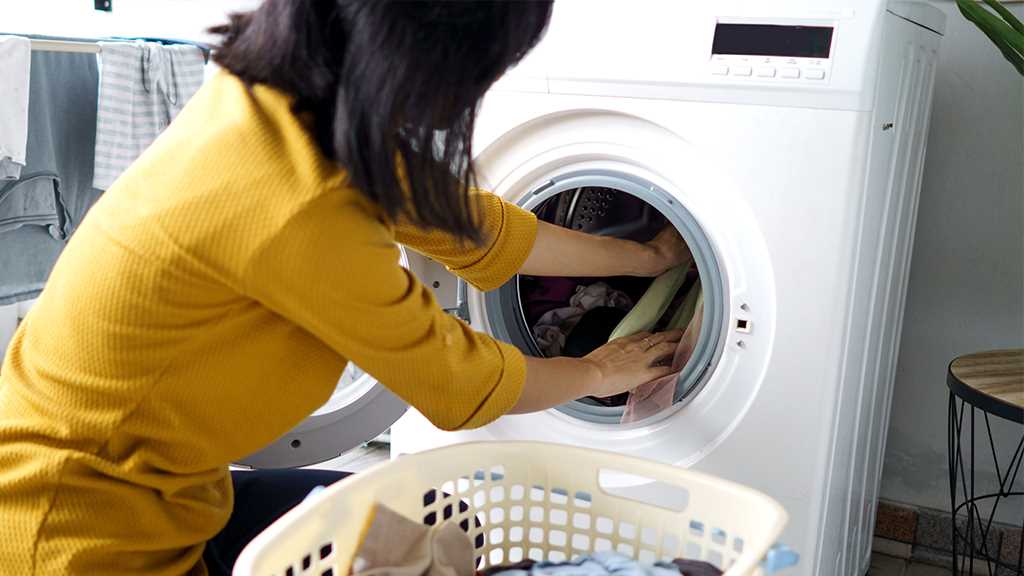
An unbalanced load is one of the most common causes of a noisy washing machine. When the load is unbalanced, the machine will vibrate and create loud noises. To solve this problem, try redistributing the clothes in the drum to ensure a balanced load. If the problem persists, you may need to remove some items and run a smaller load.
2. Loose components
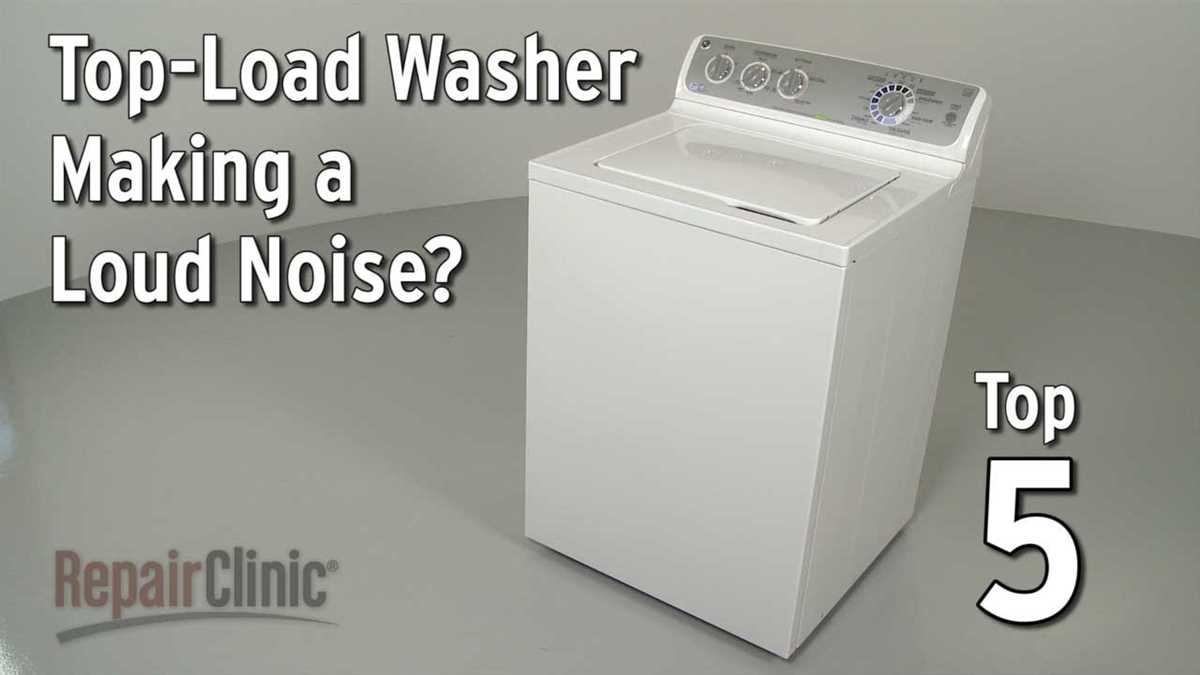
If your washing machine is making rattling or banging noises, it could be due to loose components. Check the drum, agitator, and other parts of the machine for any loose screws or bolts. Tighten them if necessary to eliminate the noise.
3. Worn or damaged drum bearings
Over time, the drum bearings of a washing machine can wear out or become damaged, resulting in a loud grinding or rumbling noise. If you suspect that the drum bearings are the cause of the noise, you may need to replace them. Contact a professional technician for assistance with this repair.
4. Faulty motor
A faulty motor can also cause your washing machine to be louder than usual. If the noise seems to be coming from the motor, it could indicate a problem with its bearings or other internal components. In this case, it’s best to consult a professional to diagnose and repair the issue.
5. Blocked or clogged drain pump
If your washing machine is making a buzzing or humming noise during the draining cycle, it could be due to a blocked or clogged drain pump. Check the pump and remove any debris or blockages that may be causing the noise. Regularly cleaning the drain pump filter can help prevent this issue.
Remember to always disconnect your washing machine from the power source before attempting any repairs or maintenance. If you’re unsure about how to fix the noise issue, it’s best to consult a professional technician for help.
Unbalanced load: Causes and solutions
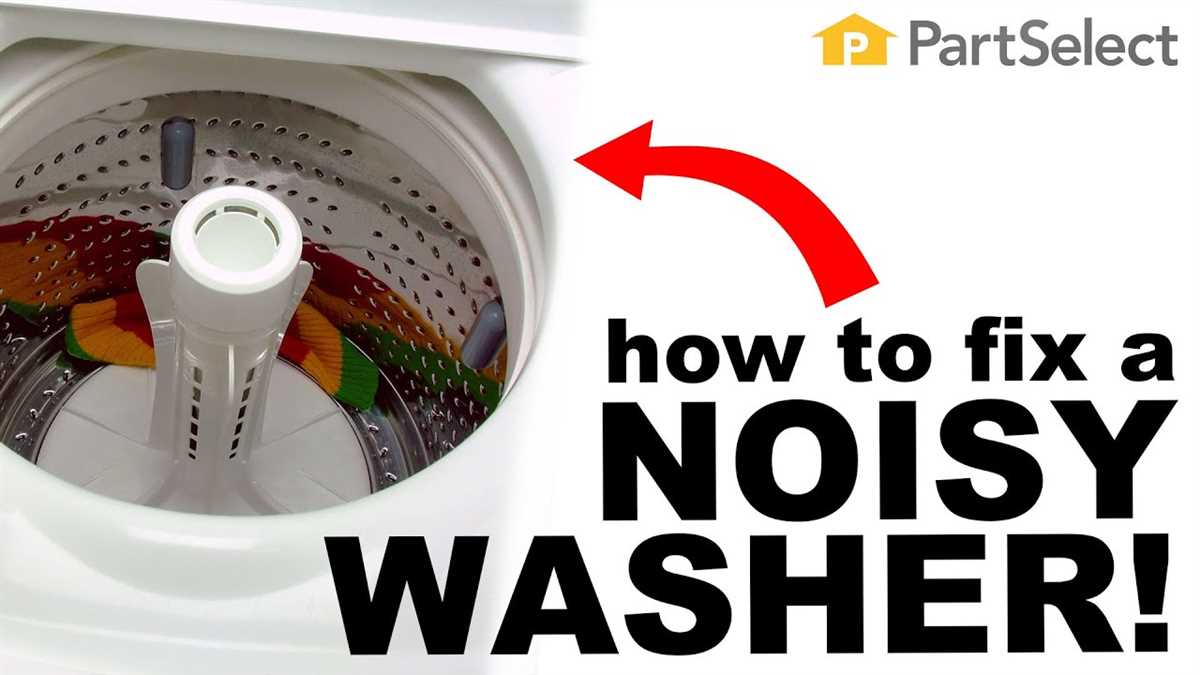
An unbalanced load is one of the most common causes of a loud washing machine. When the load inside the drum is not distributed evenly, it can cause the machine to vibrate excessively, resulting in loud noises. There are several possible causes for an unbalanced load:
- Overloading: Putting too many clothes or items in the washing machine can lead to an unbalanced load. It is important to follow the manufacturer’s guidelines regarding the maximum load capacity.
- Mixing different types of fabrics: Mixing heavy and light garments or different types of fabrics can cause an unbalanced load. The heavier items tend to sink to the bottom of the drum, creating an imbalance.
- Tangled or twisted items: Items such as bed sheets or curtains that get tangled or twisted together can also cause an unbalanced load. The uneven distribution of weight can lead to increased vibrations and noise.
If you are experiencing a loud washing machine due to an unbalanced load, there are several solutions you can try:
- Adjust the load: Stop the machine and rearrange the clothes inside the drum to ensure they are evenly distributed. This can help to reduce vibrations and noise during the wash cycle.
- Remove some items: If you have overloaded the machine, remove some items to reduce the load. It is important to follow the recommended load capacity for your specific washing machine model.
- Separate different fabrics: Avoid mixing heavy and light garments or different types of fabrics in the same load. Instead, separate them into different loads to prevent an unbalanced load.
- Untangle twisted items: If you notice any tangled or twisted items, untangle them before putting them in the washing machine. This will help to prevent an unbalanced load.
- Use a washing machine with automatic imbalance detection: Some modern washing machines have built-in sensors that automatically detect and correct an unbalanced load. Consider upgrading to one of these models if you frequently experience this issue.
By understanding the causes of an unbalanced load and implementing the appropriate solutions, you can reduce the noise and vibrations of your washing machine and ensure a quieter laundry experience.
Worn-out or damaged parts: Causes and solutions
One common cause for a loud washing machine is worn-out or damaged parts. Over time, the various parts of a washing machine can wear down or become damaged, leading to increased noise during operation. Here are some of the most common causes and solutions for worn-out or damaged parts:
1. Worn-out belt
The belt in a washing machine helps drive the drum’s motion. If the belt becomes worn-out, it may start making loud noises or even come off entirely. To fix this issue, you will need to replace the worn-out belt with a new one. Consult your washing machine’s manual or contact a professional for assistance.
2. Damaged drum bearings
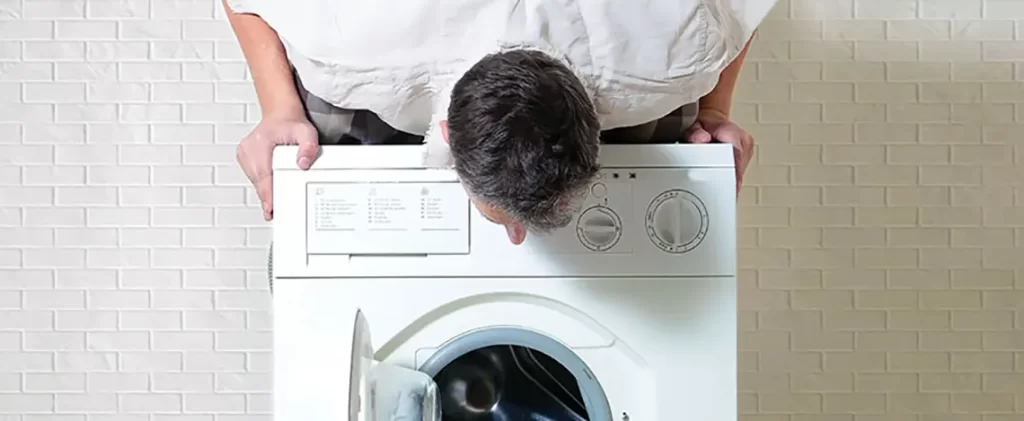
The drum bearings are responsible for allowing the drum to spin smoothly. If the drum bearings become damaged, they can cause a loud grinding or rumbling noise during the wash cycle. Replacing the damaged drum bearings is the only solution in this case. This is a more complicated repair that may require professional help.
3. Worn-out motor coupler
The motor coupler is a small part that connects the motor to the transmission of the washing machine. If the motor coupler becomes worn-out or damaged, it can result in a loud banging or clanking noise. Replacing the motor coupler is the solution for this issue. Again, consult your washing machine’s manual or seek professional help.
4. Loose or damaged suspension springs
The suspension springs in a washing machine help support the drum and absorb vibrations during the wash cycle. If these springs become loose or damaged, they can lead to excessive noise. Tightening or replacing the suspension springs should resolve the issue. Refer to your washing machine’s manual for instructions or seek professional assistance.
5. Worn-out shock absorbers
Shock absorbers are responsible for reducing the vibrations and noise produced by the washing machine. If the shock absorbers become worn-out, they may fail to dampen the vibrations effectively, resulting in loud noises. Replacing the worn-out shock absorbers should solve the problem. Follow the instructions in your washing machine’s manual or consult a professional if needed.
In conclusion, worn-out or damaged parts are a common cause of a loud washing machine. Identifying the specific part that is worn-out or damaged and taking the appropriate action, such as replacing it, will help resolve the noise issue and ensure your washing machine operates smoothly and quietly.
Improper installation or leveling: Causes and solutions
One common cause of a loud washing machine is improper installation or leveling. When a washing machine is not properly installed or leveled, it can lead to excessive vibration and noise during operation.
Causes:
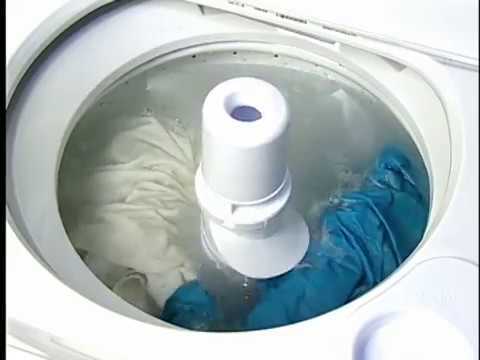
- Uneven floor: If the floor on which the washing machine is placed is uneven, it can cause the machine to wobble and produce noise.
- Uneven load distribution: Loading the washing machine unevenly with clothes can cause it to become unbalanced and generate excessive vibration and noise.
- Incorrect installation: If the washing machine is not installed correctly, such as not being placed on a stable surface or not being properly secured, it can result in increased noise levels.
Solutions:
- Level the machine: Use a level tool to check if the washing machine is level. Adjust the machine’s feet or use leveling pads to ensure it is sitting evenly on the floor.
- Check the floor: If the floor beneath the washing machine is uneven, consider placing a piece of plywood or a rubber mat under the machine to provide stability.
- Load the machine evenly: Make sure to distribute the clothes evenly in the washing machine drum to prevent unbalanced load and minimize noise.
- Follow the manufacturer’s instructions: Ensure that the washing machine is installed according to the manufacturer’s guidelines. This may include securing the machine to prevent excessive movement.
By addressing improper installation or leveling, you can significantly reduce the loudness of your washing machine and enjoy a quieter laundry experience.
Excessive vibration: Causes and solutions
One of the common causes of a loud washing machine is excessive vibration. This can be not only annoying but also indicates that there might be something wrong with your appliance. Here are some of the common causes of excessive vibration in a washing machine and their possible solutions:
1. Imbalance
An unbalanced load is one of the primary causes of excessive vibration. When the load inside the drum is not evenly distributed, it can cause the machine to shake violently.
Solution: Make sure to distribute the clothes evenly inside the drum. You can also try rearranging the clothes during the cycle to achieve a more balanced load. Additionally, avoid overloading the machine as it can lead to imbalance.
2. Leveling Issues
If your washing machine is not leveled properly, it can result in excessive vibration. Uneven floor or an improperly adjusted leveling foot can cause the machine to rock back and forth during the spin cycle.
Solution: Check if your washing machine is sitting level on the floor. Adjust the leveling feet to ensure stability. You can use a leveling tool to determine if the machine is properly balanced.
3. Damaged or Worn Suspension Springs
The suspension springs in a washing machine help absorb the vibrations during the spin cycle. If these springs are damaged or worn out, they may not be able to provide adequate support, leading to excessive vibration.
Solution: Inspect the suspension springs for any signs of damage or wear. If they appear to be damaged, you will need to replace them. Consult the manufacturer’s instructions or seek professional help for spring replacement.
4. Faulty Shock Absorbers
Shock absorbers are another component that helps reduce vibrations in a washing machine. If these absorbers are faulty or worn out, they may not effectively dampen the vibrations, resulting in excessive noise and movement.
Solution: Check the shock absorbers for any signs of damage or wear. If needed, replace them with new ones. Refer to the manufacturer’s guidelines or consult a professional technician for assistance.
5. Loose or Worn Motor Mounts
The motor mounts in a washing machine secure the motor and help reduce vibrations. If these mounts are loose or worn out, they may not be able to keep the motor in place, leading to excessive vibration.
Solution: Inspect the motor mounts and tighten them if they are loose. If the mounts are damaged, you will need to replace them. Seek professional help if necessary.
By addressing these common causes of excessive vibration, you can not only reduce the noise but also prolong the lifespan of your washing machine. If you are unsure about any repairs, it is always recommended to consult a professional technician for assistance.
FAQ
Why is my washing machine making a loud noise during the spin cycle?
There are a few possible causes for a loud noise during the spin cycle of a washing machine. One common cause is an unbalanced load, where the clothes are not distributed evenly in the drum. This can cause vibrations and noise as the machine tries to spin. Another possible cause could be worn drum bearings. Over time, the bearings can wear out and become noisy. It is also worth checking for any foreign objects, such as coins or small items, that may have gotten stuck in the drum or pump.
What can I do if my washing machine is making a banging noise?
If your washing machine is making a banging noise, it could indicate that the load is unbalanced. Try rearranging the clothes in the drum until they are evenly distributed. If this does not solve the problem, check if the machine is level. If the machine is not level, it can cause it to bang against the sides or floor when it spins. Adjust the machine’s feet to make it level. It is also a good idea to check for any loose parts or components that may be causing the banging noise.
Why does my washing machine make a high-pitched squealing noise?
A high-pitched squealing noise from a washing machine could be due to a worn or faulty drive belt. Over time, the drive belt can become stretched or worn, causing it to slip or make noise when the machine is running. It is important to replace a worn drive belt as soon as possible to prevent further damage to the machine. Another possible cause could be a problem with the motor or motor bearings. If you are unsure, it is recommended to contact a professional for repair.
Is it normal for a washing machine to make noise during its cycle?
While it is normal for a washing machine to make some noise during its cycle, loud or unusual noises could indicate a problem. It is important to pay attention to any changes in the noise level of your washing machine. If the noise is excessive or different from what you are used to, it is worth investigating further to determine the cause. Regular maintenance, such as cleaning the machine and checking for any loose parts, can help prevent excessive noise and potential damage.
What should I do if my washing machine is making a grinding noise?
If your washing machine is making a grinding noise, it could be due to a problem with the motor or pump. The grinding noise could indicate that there is a blockage or something is obstructing the pump, causing it to strain and make noise. It is important to check for any objects that may be stuck in the pump or drain hose, and clear them if necessary. If the problem persists, it is recommended to contact a professional for further inspection and repair.
Why is my washing machine making a loud banging noise?
A loud banging noise from your washing machine is often caused by an unbalanced load. This means that the clothes inside the machine are not distributed evenly, causing the machine to shake violently during the spin cycle. To fix this issue, simply stop the machine, rearrange the clothes to create a more balanced load, and restart the cycle.
What can cause my washing machine to make a grinding noise?
If your washing machine is making a grinding noise, it could be due to a problem with the bearings. Over time, the bearings can become worn out or damaged, causing a grinding sound during the spin cycle. In this case, you will need to replace the bearings to resolve the issue. It is recommended to call a professional technician to do this job, as it requires disassembling the machine.















